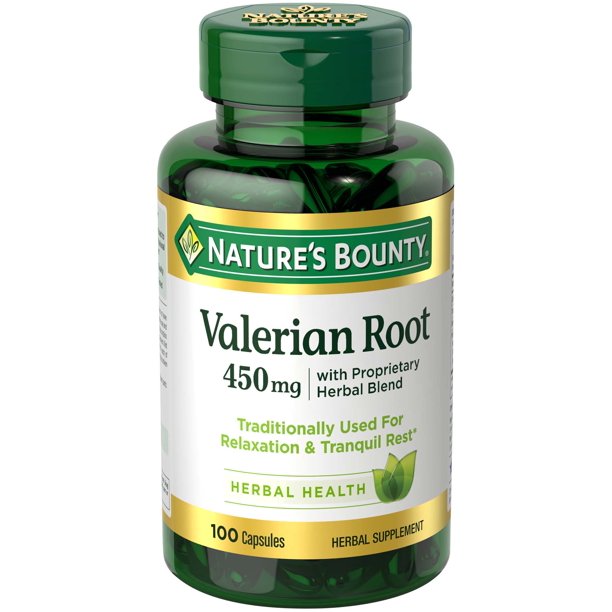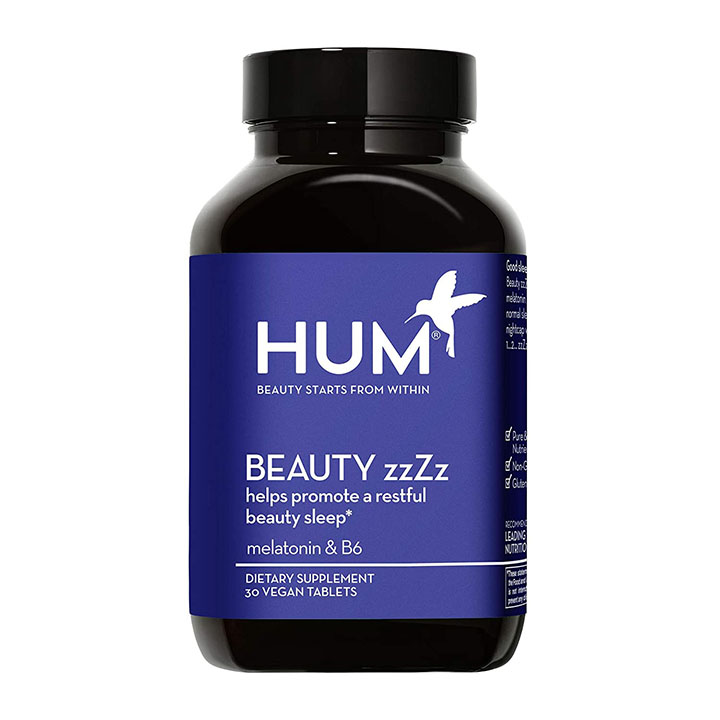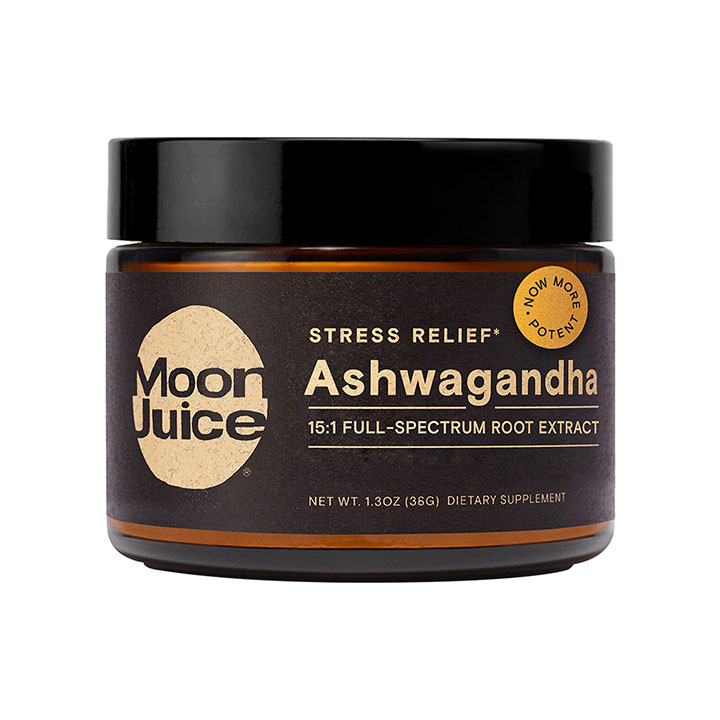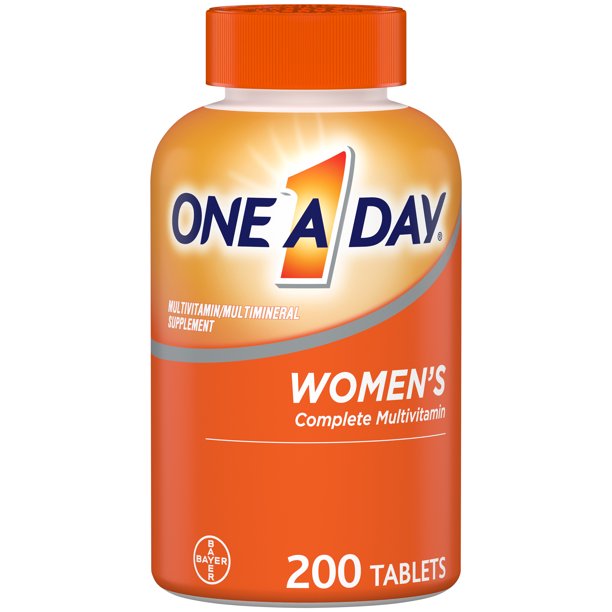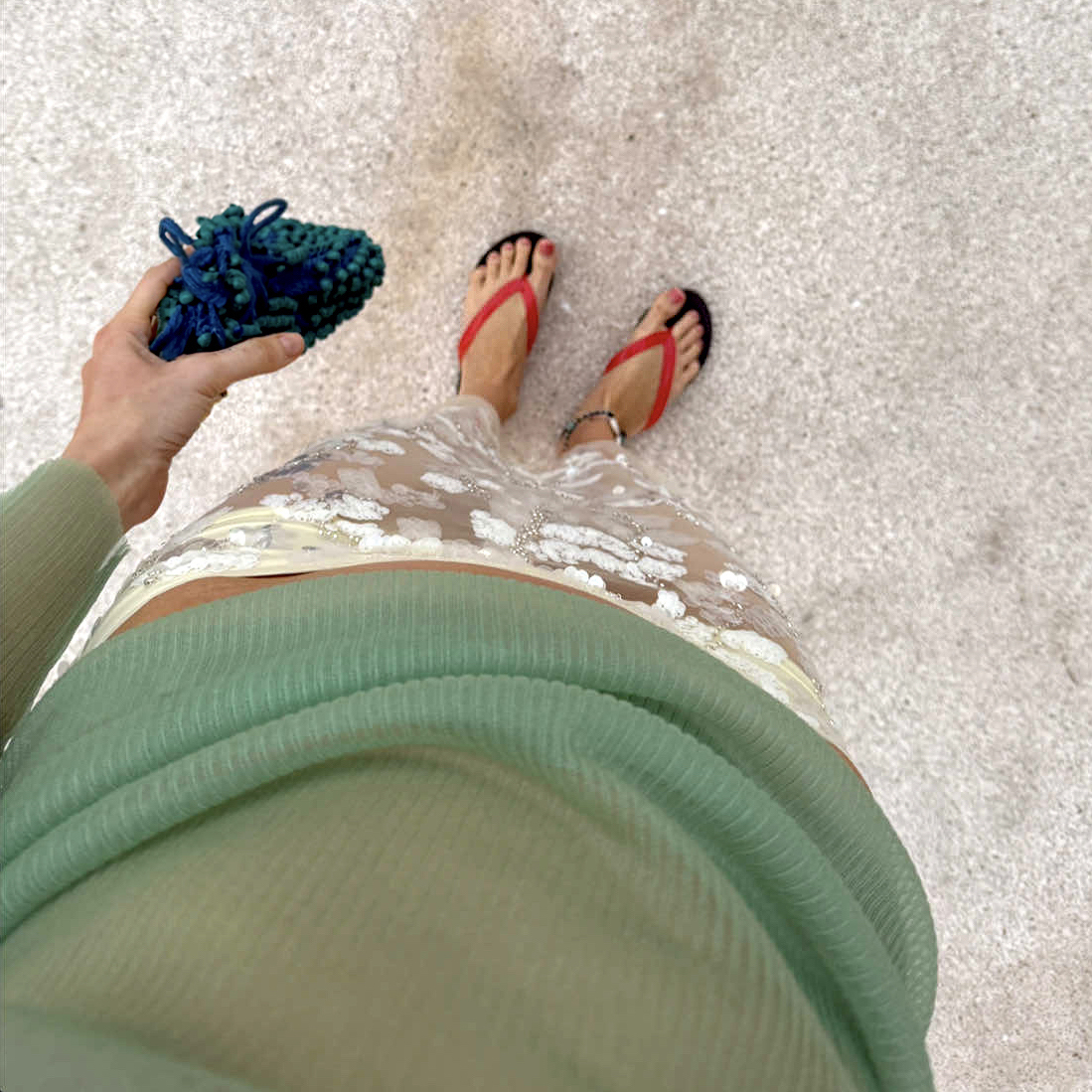The Best Sleep Supplements to Help You Drift Off—and What to Know Before Trying
- REVIEWS
- OCTOBER 31, 2021
The Best Sleep Supplements to Help You Drift Off—and What to Know Before Trying Them
by Lindy Segal
Table of Contents
- The Benefits of Sleep Supplements
- Potential Side Effects and Drawbacks of Sleep Supplements
- Common Sleep Supplement Ingredients
- Other Practices That Can Help With Sleep
- Sleep Supplements to Consider
Sleep deprivation affects nearly every adult at one point or another. Whether it’s stress, tension, or anything else, seemingly all aspects of our lives seem to converge in our minds at the exact moment we want to shut off. And once you’re asleep, the new
challenge becomes actually staying asleep.
"In today’s modern world, we have a nearly constant stream of distractions and disruptions that leave us feeling less than fully rested,” says Cara Harbstreet, a Kansas City–based dietitian and nutrition expert. "A good night’s sleep is one of the best habits you can incorporate into your daily life. It can help improve your learning, decision-making, and even your creativity.”
Conversely, when we don’t get enough sleep, we don’t just feel sleepy the next morning—it can actually affect our overall mental and physical health. "Restful sleep is essential to maintain and repair your body. And without proper sleep, you are more susceptible to disease development,” explains Tricia Pingel, NMD, a Scottsdale, Arizona–based naturopathic physician and expert on stress and adrenal fatigue.
In some cases, sleep supplements may be the solution (or part of the solution). To find out, we asked these two experts to help break down the pros and cons of taking sleep supplements, what to look for in one, and more. Keep reading for help towards your next good night’s sleep.

PHOTO: EVERETT COLLECTION
The Benefits of Sleep Supplements
The good news is that studies support that supplements can not only help you fall asleep but can also help you get a more restful sleep. "Using an herbal or a nutritionally based sleep supplement can assist with improving the quality and quantity of your sleep, and, if used appropriately, it can even begin to address some of the underlying root causes of insomnia,” says Pingel. Harbstreet agrees, adding that they may improve sleep quality in those with jet lag, and "other problems affecting a person’s circadian rhythm that are causing sleep disturbances.”
And your sleep problems don’t have to be chronic in order to take supplements, either. "Depending on the therapy chosen, you can absolutely use them more acutely as well as consistently,” says Pingel. "The difference comes down to the underlying reason behind why the sleep disturbance is happening. If it is acute stress or travel, then melatonin, valerian, or passionflower can be helpful. If it is chronic, these can also help, but you may need to consider L-theanine, phosphatidylserine, magnesium, and a more comprehensive blend of herbs.” And if you’re someone who leans on Benadryl to help you fall asleep, Pingel suggests finding a new option. "I never recommend using Benadryl unless it is a very acute situation without the likelihood of recurrence.”
Still, Pingel notes, even the best supplement isn’t a silver bullet. "Occasional sleep problems might be exacerbated by things like traveling, unfamiliar sleeping environments, stress, caffeine intake, and more, so it’s important to be realistic about the impact a sleep supplement could have with these other factors at play,” she explains.
Potential Side Effects and Drawbacks of Sleep Supplements
It’s important to note that, unlike medications, vitamins and supplements are not regulated by the FDA, and it can be hard to find substantial studies to support results. "There is not enough research to know how sleep aids affect sleep in most people,” says Harbstreet, adding that "The use of supplements can cause issues such as allergic reactions, adverse side effects like G.I. symptoms or headaches, excessive sleepiness and grogginess, and drug interactions.”
That being said, many supplements may still be effective—just check in with your doctor before trying anything new. "Since there is limited research for these supplements and [their] potential benefits, it is important to talk with your healthcare team before taking a sleep aid, and to stop taking if you notice any adverse changes in your health,” says Harbstreet, adding that "This caution should be higher for children, pregnant women, and women who are breastfeeding.”
Because of the lack of regulation, Pingel admits that the supplement aisle can feel like the Wild West. "The wide variety of supplemental sleep aids on the market makes it very confusing to know which one to pick,” she admits. In addition, "Many of them are labeled as ‘natural’ but contain medications that can produce side effects. When it comes to the herbal or ‘natural’ substances, these also range greatly in quality—making it very confusing as well.”
And melatonin has its own set of complications. "Often, people reach for melatonin, which has its place in sleep therapy but ranges greatly in dosage and quantity, and it can become less effective over time in many people,” Pingel explains, adding that because of these factors, "I recommend considering using amino acids such as phosphatidylserine, L-theanine, or nutrients such as magnesium glycinate and herbs such as valerian, passionflower, lemon balm, lavender, magnolia, ashwagandha, and Siberian ginseng, as they can also benefit the body in other ways.”

PHOTO: STOCKSY
Common Sleep Supplement Ingredients
Valerian root: "This herbal remedy is commonly used for its sleep-inducing effects as well as a treatment for menopause, anxiety, and depression,” says Harbstreet. "Research suggests valerian root may improve sleep quality when taken right before bed.” Adds Pingel, "In fact, one study revealed that valerian improved sleep in 89% of those studied and even produced ‘perfect sleep’ in 44% of the study participants.”
Melatonin: The most common also may be the most controversial. "Melatonin is a very common ingredient in most natural sleep substances, and it does have great benefit,” says Pingel, adding, "That said, it also comes with some unwanted side effects. I recommend melatonin only for occasional use, such as if you have returned from a long trip and are adjusting to time zones. Using melatonin daily, especially if the insomnia is linked to stress, can actually do more harm than good.”
Some people don’t mind the idea of taking melatonin because it’s naturally occurring in our bodies. "Melatonin is a hormone our body produces naturally. In the evening, our body’s levels rise to promote sleep and let our bodies know it is time for bed,” explains Harbstreet. "The use of melatonin may help reduce the time needed to fall asleep and increase total sleep time.” You can find doses of 20 milligrams or more, but Harbstreet says to start much lower: "Doses up to 5 milligrams have been shown to be generally safe for continued use in most people.”
Ashwagandha: This herb has gained steam in recent years thanks to its alleged anxiety-reducing properties. "Ashwagandha is an herb that combats stress, which is often a major underlying cause of many sleep disorders,” says Pingel. "In order to truly repair your sleep, you need to address the reason why it is happening in the first place. Ashwagandha has been shown to support healthy adrenal gland function by fighting stress, anxiety, and inflammation.” And there’s research to support it, too. "One study revealed that supplementing with ashwagandha decreased cortisol levels and even reduced reported anxiety levels and insomnia by 69%,” says Pingel.
GABA (gamma-aminobutyric acid): Although you probably won’t see this ingredient solo, it’s often included in sleep supplements. "GABA is a neurotransmitter made in the brain that helps regulate brain function,” explains Harbstreet. "Studies have found that GABA supplementation can induce relaxation and reduce anxiety.”
Magnesium: This mineral is found in foods like leafy greens and nuts, but is commonly taken as a supplement as well. "It is believed magnesium may help regulate neurotransmitters in our body that are related to sleep and other important body functions,” explains Harbstreet. "It is known to help the body feel calm and relaxed. Research has shown it can help with insomnia and improve sleep quality.”
L-theanine: You may have seen this ingredient in supplements for energy or focus, but it may also be an effective sleep aid, says Harbstreet. "L-theanine is an amino acid that is most commonly found in green tea,” the expert explains. "It is thought to promote relaxation in the mind and help with anxiety and stress relief.”
Passionflower: "Passionflower is thought to increase levels of GABA in the brain, which lowers brain activity and promotes a feeling of calm and relaxation,” says Harbstreet. "Studies have reported the consumption of passionflower can have sleep benefits for those with mild fluctuations in sleep quality.”
Other vitamins: Finally, your body’s overall health contributes to how well you sleep too. "It is important to note that certain vitamins and minerals (vitamins C, B5, and B6 as well as zinc and magnesium) are required by your body to produce the neurotransmitters you need for appropriate sleep,” says Harbstreet. "So, any deficiencies in these nutrients can negatively impact your sleep. You also need a balanced gut microbiome in order to balance and maintain these neurotransmitters.” Even if you don’t have a specific deficiency, taking a daily multivitamin may help you feel more balanced.
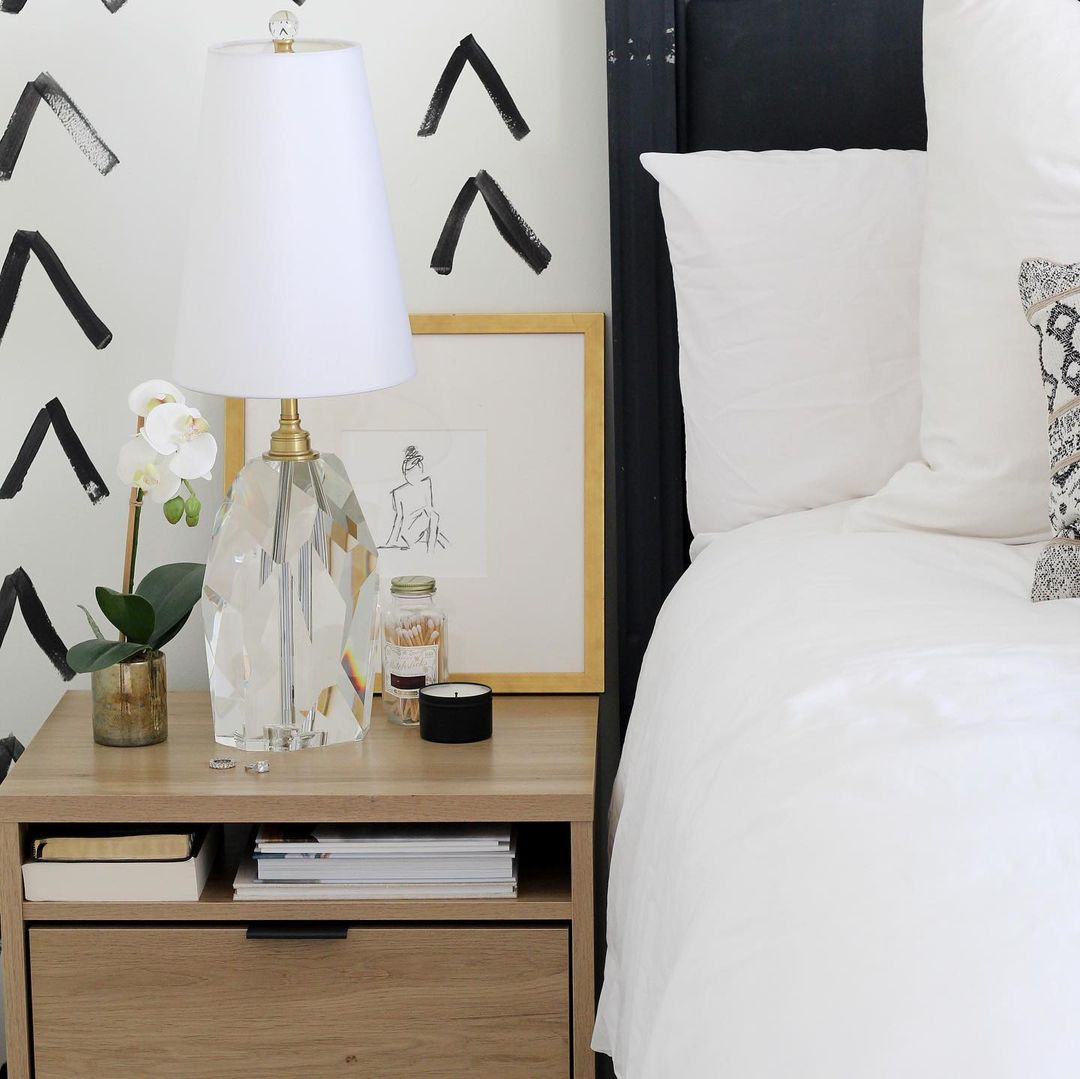
PHOTO: @CANDIDLYDEENA
Other Practices That Can Help With Sleep
Some of the most effective things you can do for better rest are adjustments to your routine. "If you have trouble sleeping, I recommend first trying to implement better sleep habits,” says Harbstreet. "This might [mean] changes to your bedtime routine or sleeping environment/bedroom. However, if this doesn’t address the issues, sleep supplements could be a helpful way to minimize the frustration of not being able to fall asleep or stay asleep.”
Limit time on your phone, especially before bed. Easier said than done, we know, but consider this: "A 2017 study revealed that using your smartphone for at least five hours each day is linked to shorter sleep duration as well as insomnia,” reveals Pingel. Plus, "another study showed that exposure to blue light within two hours of bedtime also resulted in less time asleep. Moreover, it left the participants groggy and struggling to focus the next day.”
If you can, "Plan to limit your screen time at least two hours before bed and consider leaving your phone in a room other than your bedroom at night,” recommends Pingel.
You can also try yoga or deep breathing. Light yoga postures and deep breathing can be a great way to release tension in the mind and body. "One study focusing on 120 seniors revealed that practicing yoga for a single week decreased the time it took to fall asleep by about 10 minutes. Furthermore, it increased the participants’ sleep time by an entire hour,” says Pingel.
When in doubt, write it out. Often, we can’t sleep because we’re too focused on something that happened during the day or is about to happen. But writing it down on paper may provide some relief. "Before bedtime, consider writing about your gratitude in a journal,” says Pingel. "I like to pick the top three stressors of my day and reframe them into positives, such as what I learned or how it will make me better.” In fact, she says, "studies have shown that people who regularly practice gratitude experience improved sleep quality and duration.”
Sleep Supplements to Consider
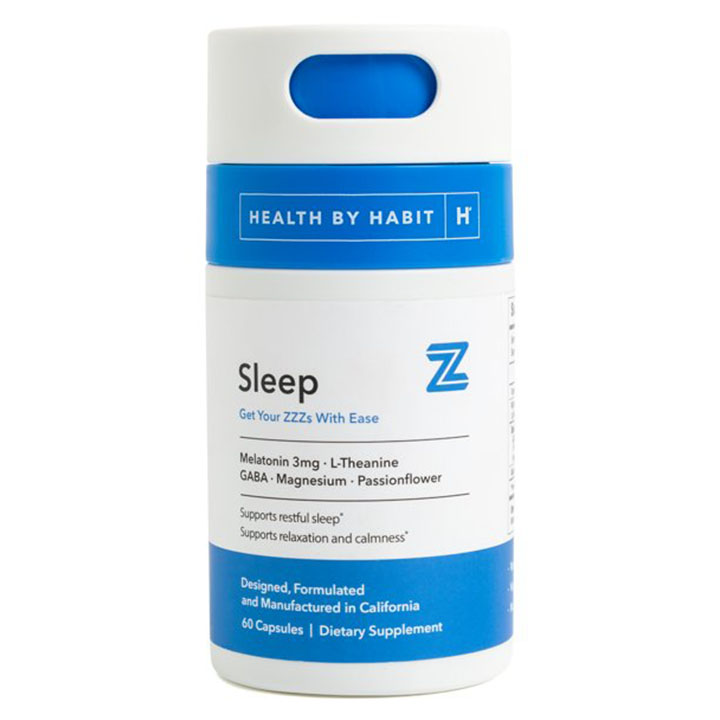
"It’s filled with some of my favorite natural sleep aid ingredients like melatonin, magnesium, passionflower, GABA, and more,” says Harbstreet. "Plus, I like that it can be used daily to help me create healthier routines and habits, especially as I’m winding down from a stressful day.”
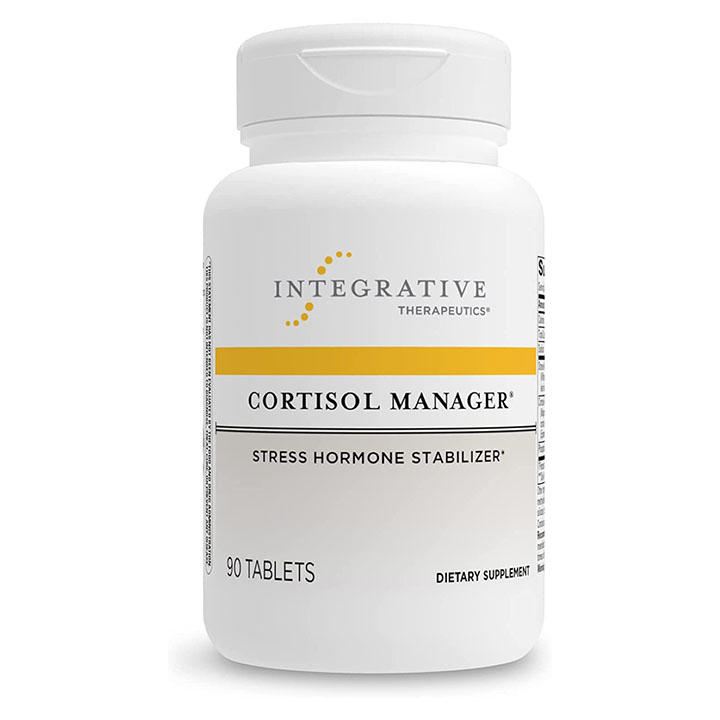
"This supplement is great for chronic insomnia due to stress. It contains nutrients needed to restore proper sleep-wake cycles and help improve both sleep quality and quantity,” says Pingel.
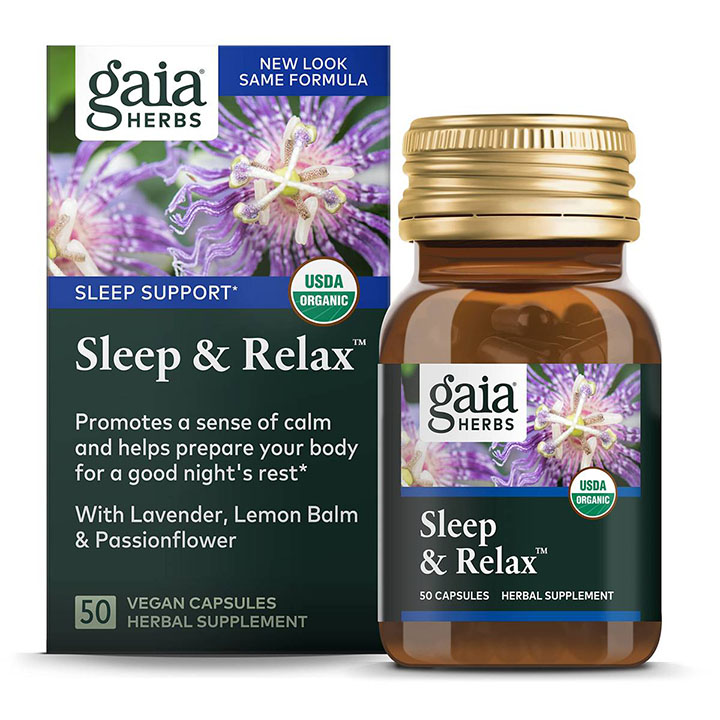
"It contains herbs that help calm the mind and allow for restful sleep,” says Pingel.
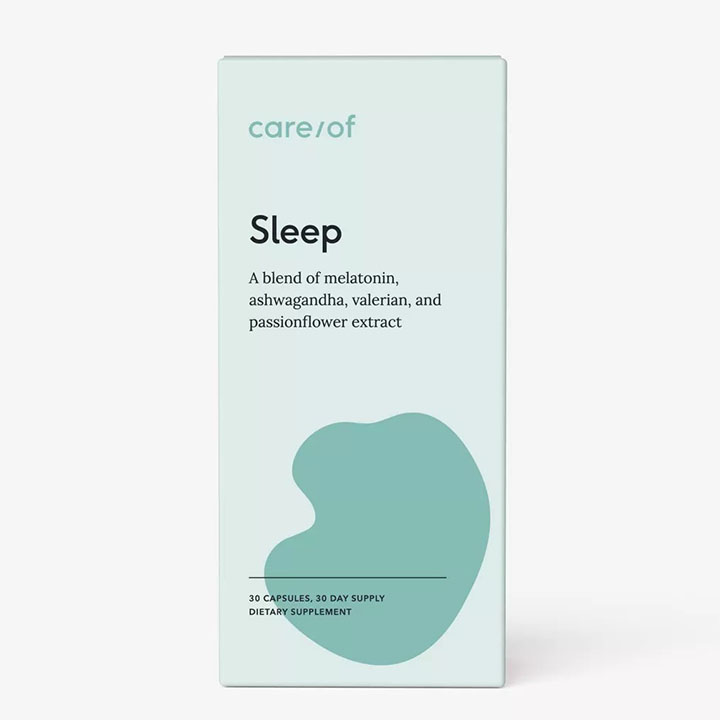
You’ve seen its personalized vitamin packs all over your Instagram feed, and now the brand has a new, affordable sleep supplement containing melatonin (2.5 milligrams), ashwagandha, valerian root, and passionflower extract.
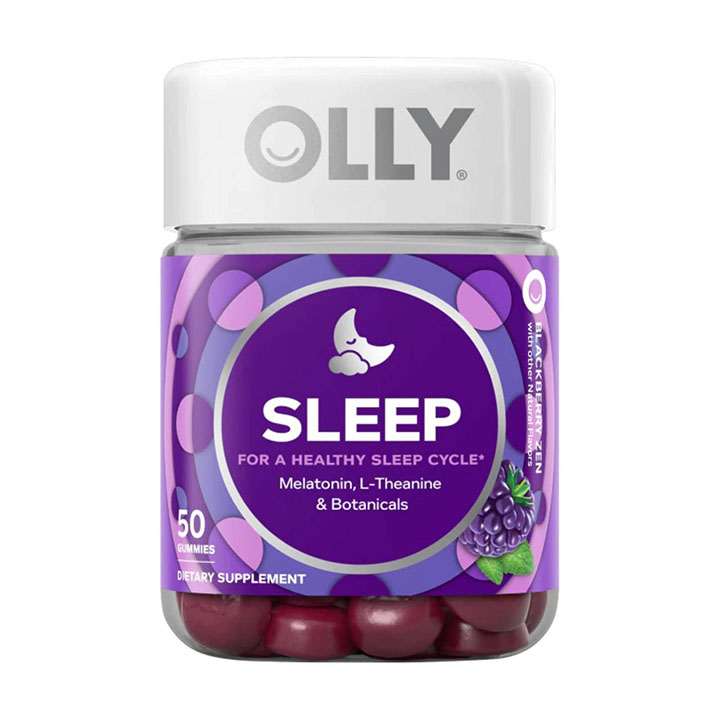
If you prefer your supplements in gummy form, consider these blackberry-flavored gems. They taste great and also boast 3 milligrams of melatonin, L-theanine, chamomile, and lemon balm.
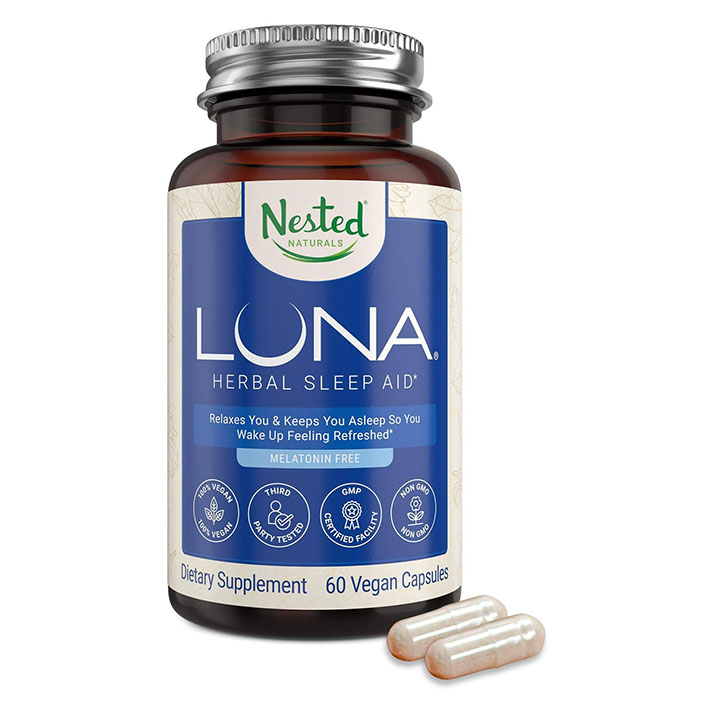
Finding a supplement that is completely melatonin-free is tough, but this popular option checks all the boxes. With L-theanine, chamomile, and passionflower, it still has plenty of ingredients that should lull you to sleep.
Up Next: These Relaxing Yoga Poses May Actually Help You Fall Asleep Tonight
Disclaimer
This article is provided for informational purposes only and is not intended to be used in the place of advice of your physician or other medical professionals. You should always consult with your doctor or healthcare provider first with any health-related questions.
Lindy Segal is a freelance writer, editor, and content strategist based in New York City. She's been in editorial for over eight years as a social media manager and writer covering beauty, fashion, and lifestyle at Glamour and People. These days, in addition to Who What Wear, you can see her byline at places like Harper's Bazaar, Cosmopolitan, Ipsy, and WeWork. Both a skincare obsessive and a minimalist, she keeps her routine short, sweet, and effective—and she doesn't go a day without sunscreen. She's also deeply passionate about sustainability, and she strives to recommend products she truly believes are worth the investment.
-
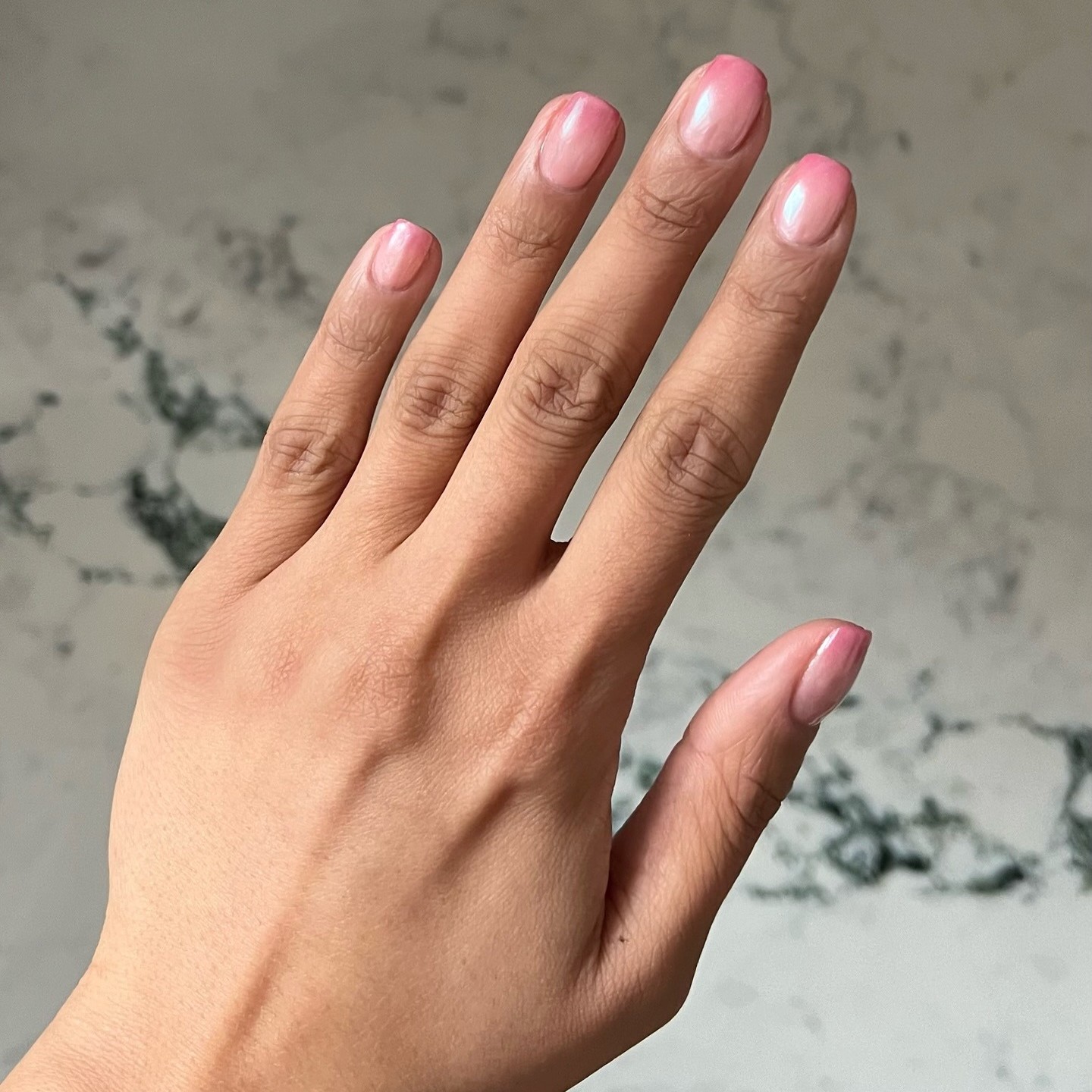 I Know Expensive-Looking Nails When I See Them, and I'm Swooning Over This "Candy Floss" Mani
I Know Expensive-Looking Nails When I See Them, and I'm Swooning Over This "Candy Floss" ManiI couldn't have screenshotted it any faster.
By Jamie Schneider
-
 Sydney Sweeney Just Cosigned Chocolate Croc Nails (Plus a Matching Corset) for Spring
Sydney Sweeney Just Cosigned Chocolate Croc Nails (Plus a Matching Corset) for SpringI'm officially copying it all season.
By Jamie Schneider
-
 I'm Bored of Demure Manicures, so I Tried the Ornate Spring Nail Trend That's All Over Pinterest
I'm Bored of Demure Manicures, so I Tried the Ornate Spring Nail Trend That's All Over PinterestI can't get enough.
By Alyssa Brascia
-
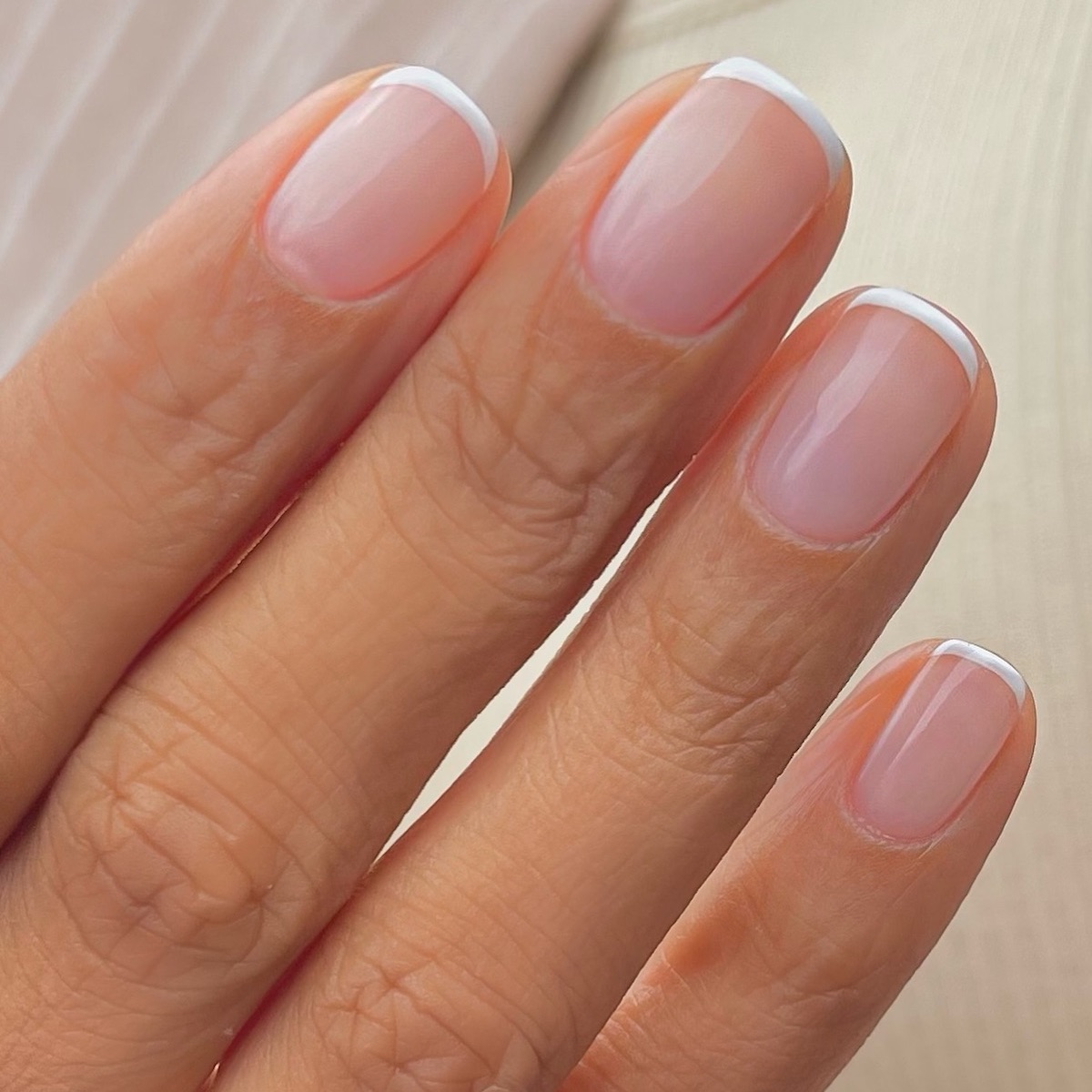 The "Baby French" Is Officially Spring's Most Elegant Nail Trend—Hailey Bieber Agrees
The "Baby French" Is Officially Spring's Most Elegant Nail Trend—Hailey Bieber AgreesGo ahead and book that first spring nail appointment.
By Kaitlyn McLintock
-
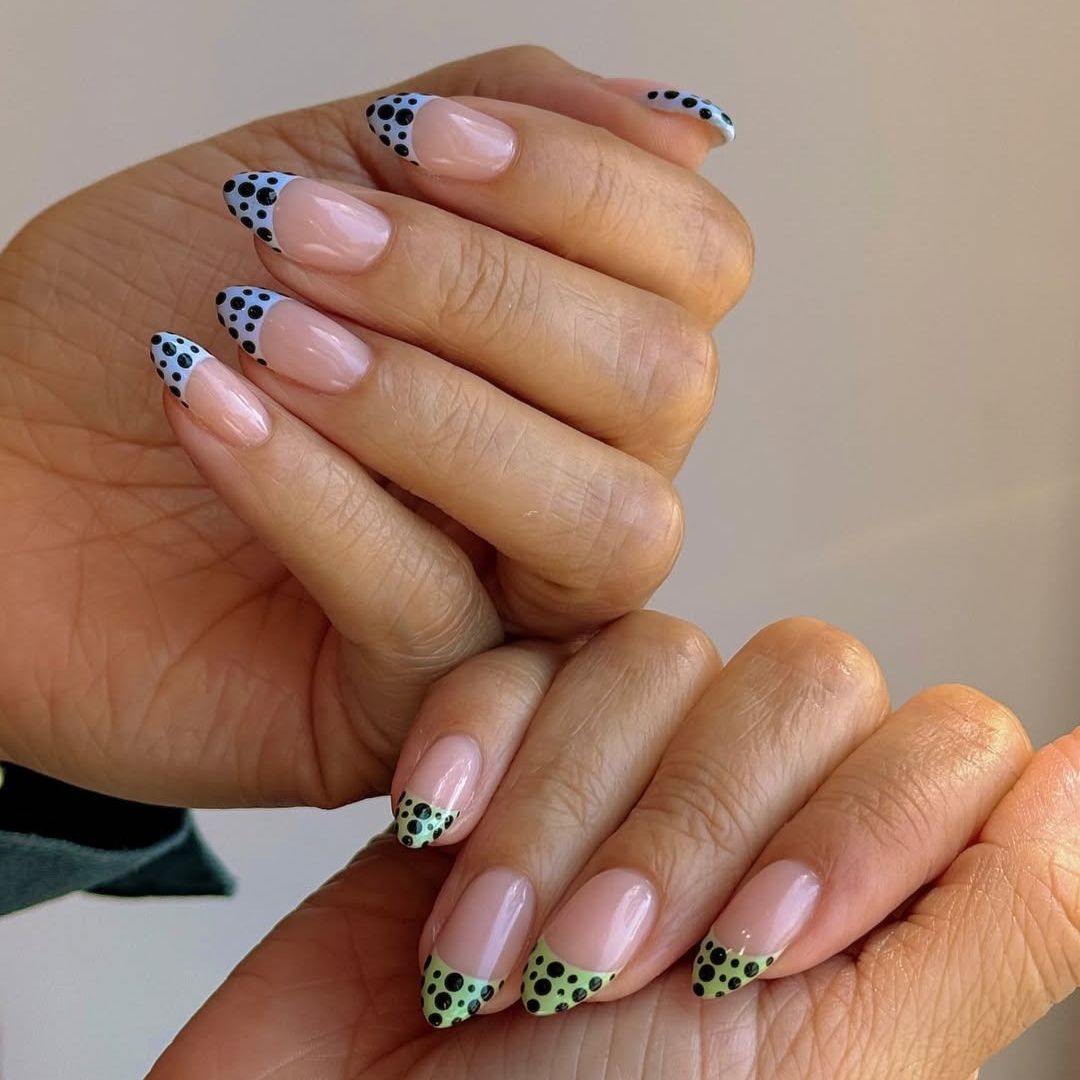 I Thought Easter Nails Were Tacky Until I Saw These 9 Elevated, Effortlessly Chic Designs
I Thought Easter Nails Were Tacky Until I Saw These 9 Elevated, Effortlessly Chic DesignsYou’ll want to bring these pics to your next nail appointment.
By Alyssa Brascia
-
 Selena Gomez's Date-Night Nail Polish of Choice? This Nostalgic $13 Shade of Cherry
Selena Gomez's Date-Night Nail Polish of Choice? This Nostalgic $13 Shade of CherryI'm buying a fresh bottle.
By Kaitlyn McLintock
-
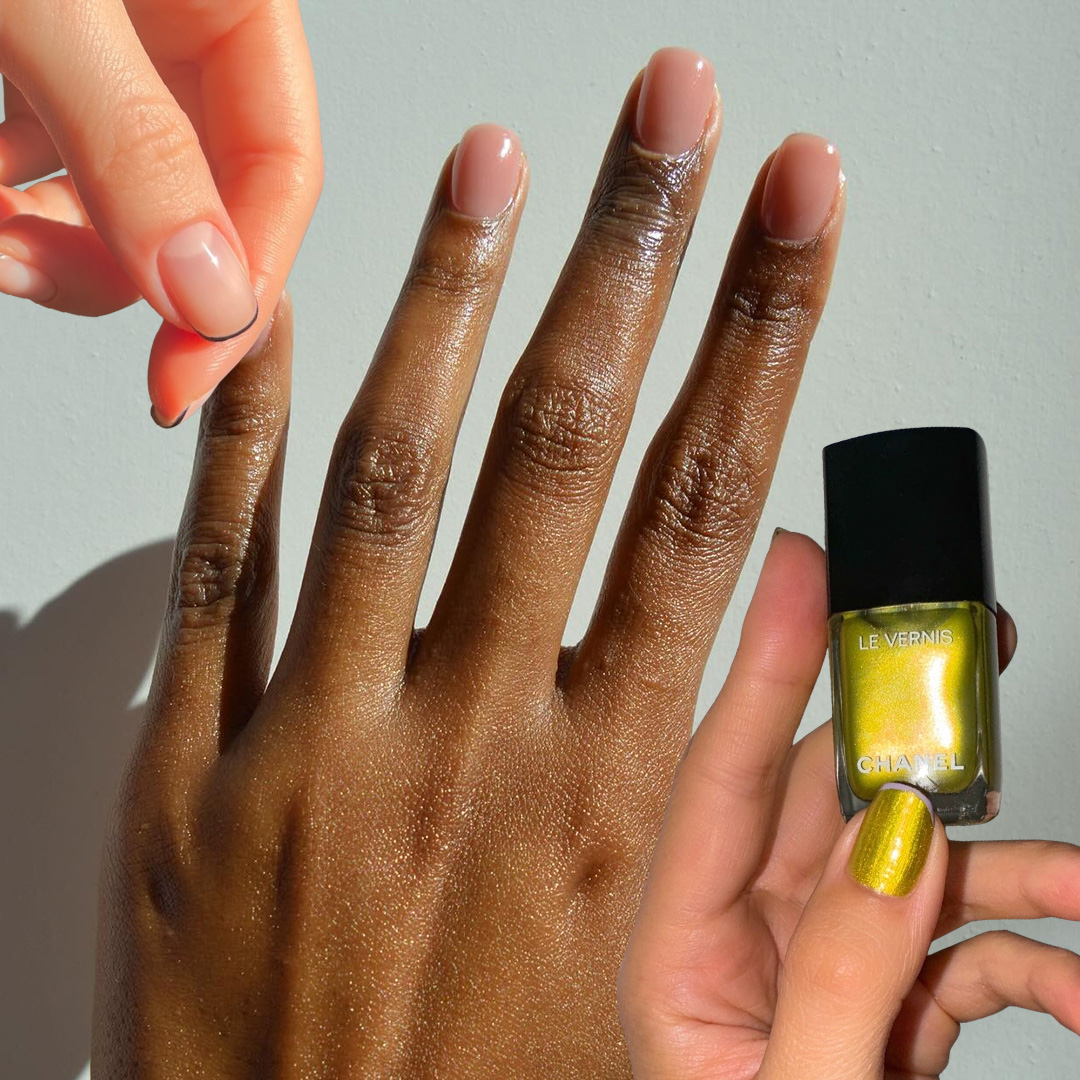 Celeb Manicurists Confirmed It—These 9 Budding Nail Trends Will Be Everywhere This Spring
Celeb Manicurists Confirmed It—These 9 Budding Nail Trends Will Be Everywhere This SpringTo the salon!
By Alyssa Brascia
-
 This Is the It-Girl Nail Trend Every Miu Miu Fan Will Wear
This Is the It-Girl Nail Trend Every Miu Miu Fan Will WearIt's far from demure.
By Jamie Schneider
